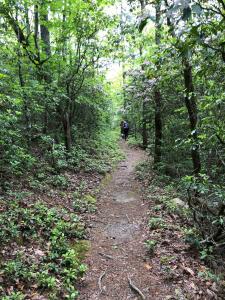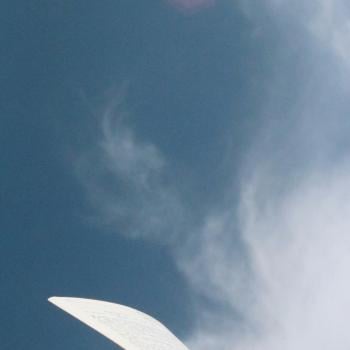
Scripture: Matthew, chapters 11-13
Matthew 13:47-52 (NASB):
“Again, the kingdom of heaven is like a dragnet that was cast into the sea and gathered fish of every kind; and when it was filled, they pulled up on the beach; and they sat down and gathered the good fish into containers, but the bad they threw away. So it will be at the end of the age: the angels will come forth and remove the wicked from among the righteous, and they will throw them into the furnace of fire; in that place there will be weeping and gnashing of teeth. Have you understood all these things?”
They said to Him, “Yes.”
And Jesus said to them, “Therefore every scribe who has become a disciple of the kingdom of heaven is like a head of a household, who brings out of his treasure new things and old.”
Observations:
Matthew 13 contains several familiar parables. Nearly every believer knows the parable of the sower. The parables of the mustard seed, hidden treasure, and pearl of great price are also well-known. But here at the end of Jesus’ teaching we find the parable of the dragnet, which is not as familiar to most people. The kingdom of heaven is like a dragnet that was cast into the sea and gathered fish of every kind.
First, the purpose of the kingdom is to gather people. We see this as well in the parable of the weeds (verses 24-30). Both parables involve sorting things out “at the end” – at the harvest and after the net is pulled in. Jesus does not explain the parable of the weeds, but he does explain the dragnet. So it will be at the end of the age: the angels will come forth and remove the wicked form among the righteous.
Sorting things out:
Both of these parables remind us that it is not our job to try to sort the good from the bad (among people). Jesus’ explanation of the dragnet makes that clear: the angels will come forth and remove the wicked from among the righteous. That doesn’t mean that we are to ignore people’s actions; Jesus also said that we know people by their fruit. But the time for sorting people into “righteous” and “wicked” is not now – because people can change. At any point in our lives, we would have been classed among the “wicked,” but God in His mercy saved us and transformed us. He can do that for anyone.
But if we try to sort those things out now, we may get in the way of God’s work in someone’s life. That’s the point of the parable of the weeds. If we try to pull the weeds out now, we may pull up some wheat with them. “Allow both to grow together until the harvest” (v 30). At the harvest, it will be obvious which is which. The same will be true at the judgment.
New things and old
But tucked at the end of this passage is one more comment. Therefore every scribe who has become a disciple of the kingdom of heaven is like a head of a household, who brings out of his treasure new things and old. That’s the kind of comment that we might just skip over, since it doesn’t seem to connect with the parable Jesus just finished.
But think about what Jesus is saying. First, a scribe who becomes a disciple of the kingdom – do you recognize what Jesus is saying? The scribes were also referred to as “experts in the law” or “lawyers” in other passages and translations. They were the ones who copied the Scriptures by hand, and studied them. They were experts on the law of Moses. So, the first point that Jesus makes is that not every scribe is part of the kingdom. He refers to a scribe who has become a disciple of the kingdom of heaven.
Second, he brings out of his treasure new things and old. The new things are the things of the kingdom; the old things, therefore, must be the things of the law. Yet Jesus refers to both of these as coming out of his treasure. Jesus confirms yet again that He did not come to completely reject the law, but to fulfill it. There are still treasures in the law for disciples of the kingdom of heaven!
Application:
Jesus asks the disciples after he explains the parable of the dragnet whether they understood all these things. It’s important for us to understand them as well. It is far too tempting for us to think that we need to purge and purify God’s kingdom. However, we’re not able to tell the wheat from the weeds. We end up pulling up the wheat along with the weeds. Jesus paid too much to save people for us to pull them up in our efforts to “weed the garden.”
With all of the fishing imagery that we find in Scripture, there’s one other comment I like. I’m not sure who originated it, but here it is: “Jesus makes us fishers of men, and He says: ‘You catch them; I’ll clean them.’” We don’t drive the transformation process – not in ourselves, and not in others. That’s the Holy Spirit’s work. We’re called to recognize what the Spirit is doing and respond in obedience. And that obedience includes doing what Scripture teaches!
Prayer:
Father, thank You for bringing us in with Your dragnet. Thank You for the promise that at the end, Your angels will sort everything out. That means we need to just try to get as many fish into the net as possible. Help us to do that! Help us to live in ways that draw people to Jesus.
Thank You also for reminding us that there are “new treasures and old” for us in Your kingdom. Your mercies are new every morning. Your Word is eternally true. Draw us closer to You as we look for Your treasures each day. Amen.












